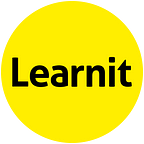Dear global education leader,
Last week I visited Learnlife’s urban hub in Barcelona, a project I first heard about three years ago. The goal of Learnlife is to revolutionize education by making it learner-centered, completely personal (beyond personalized), and self-determined. There are no teachers but rather learning guides, and young people decide how they spend a huge amount of their time. Instead of grades, students partake in a 360 review: Every 12 weeks the learner presents what they have mastered, and peers, parents and learning guides offer real-time feedback. The space is beautiful and airy, more akin to a startup than a school. There are reading nooks and 3D-printing labs, design-thinking studios and multimedia spaces, not to mention a CNC machine for software-directed manufacturing.
My 13-year-old daughter Ella visited for a day. She spent some of the morning on numeracy via Khan Academy, and then did improv and cooking, before jumping in with some students and learning about their passion projects. Lara, a learner, was working on a vegan-themed story about a cow who sacrificed her life for society. Another student was writing a novel in the form of a slide deck which allowed the reader to pick their direction, a sort of digital “choose your own adventure.” Both said they loved the freedom the school afforded them; Lara wanted the 10-year-olds out of their cohort of “explorers” (meant to be 12–14ish) and a comprehensive sex ed class, thoughts they shared directly, and without hesitation, with the founder, Christopher Pommerening, on my tour (transparency in action).
Ella enjoyed her day, and found the stark differences to her very-English-school notable. The learning guides were more like friends. The vibe was relaxed — when the improv class fell apart, no one freaked out. She liked learning how to make granola (and eat it). Her general conclusion was that it was cool, but she loves being taught things and the structure her day provides, and loves competitive sports. She was happy doing Khan Academy — her school complements its own direct math instruction with HegartyMaths, another online program — but when she got stuck there was no one to help her, including her peers.
When Christopher and I discussed this feedback he lamented that “If people like to be put on tasks and told what to do they will never develop the competency needed in today’s world.”
Maybe. But if the goal is to create a student-centered experience and true personal learning, there will need to be room for those who lean toward more structure. Ella knows who she is (“self-knowledge”), her passions (sport, dance, writing), and how she likes to learn (from teachers, peers and YouTube, in that order). If we flip to a more self-directed system, might we lose those in the middle for whom school actually does work?
I’ve always loved Alison Gopnik’s work suggesting that children truly thrive when we approach education, and parenting, as gardeners not carpenters. The Learnlife model creates some fertile conditions, with room for those with learning differences and those for whom schools so completely fail — either at the top or bottom end. Increasingly it’s filling in the middle, too, which means we shouldn’t replace our current orthodoxy that learning should be one-size-fits-all with another — that every child must forge an individual learning path.
There are 11 “Learn hubs” already negotiated, agreements to implement some or all of the paradigm elements, in Zurich, Hamburg and Costa Rica and beyond. Twenty are in negotiation; about 172 parties in 42 countries are exploring a hub, up from 60 at the start of the year. The goal is to reach 100 million learners by 2030, mostly convincing governments to embrace innovation.
Post Covid, everything accelerated dramatically. “Parents saw what happens in schools,” Christopher says.“They were unaware how unprepared schools are for the present, and for the future.”
Learnlife makes space for a lot of things to flourish: passion, jaggedness, connection to community and flatter power dynamics. This will mean making room for all types of learners, even ones who like a little direct instruction.
Stay curious,
Jenny
🎙 LISTEN FURTHER: CHRISTOPHER POMMERENING, FOUNDER & CEO, LEARNLIFE
